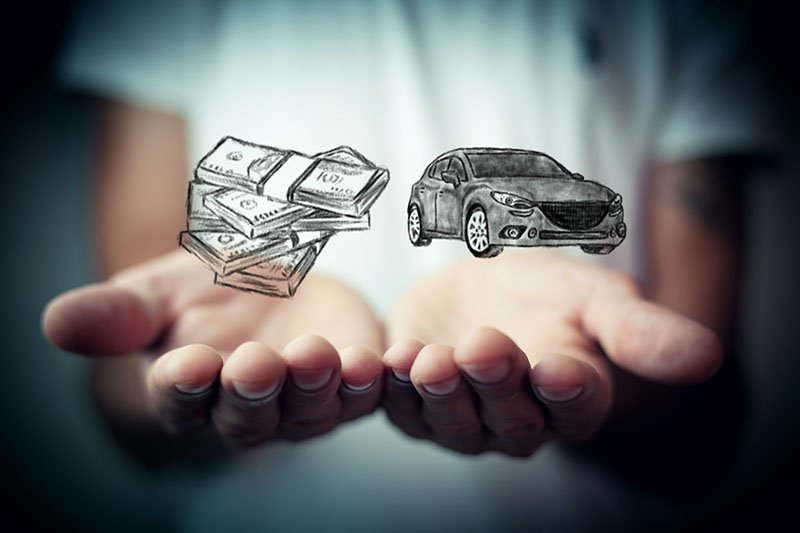In today’s fast-paced world, financial exigencies can arise at any time. Whether it’s an urgent medical emergency, an opportunity for higher education, or simply a pressing home renovation, having access to quick funds can make a significant difference. One increasingly popular financial product is a loan against a vehicle. This article delves into the myriad benefits of taking a loan against a car, including the ease of obtaining necessary loan against vehicle documents.
Understanding a Loan Against Vehicle
A loan against a vehicle is a type of secured loan where the borrower pledges their vehicle (car, two-wheeler, or even commercial vehicles) as collateral to the lender. The lender, in turn, provides a loan amount based on the vehicle’s current market value. Unlike personal loans which are unsecured and come with higher interest rates, loans against a vehicle often have favorable terms due to the security provided by the collateral.
Key Benefits of a Loan Against Vehicle
1. Quick Access to Funds
One of the standout benefits of taking a loan against a vehicle is speedy access to funds. Considering an emergency or urgent financial requirement, getting a loan against a vehicle is faster compared to traditional loans. Financial institutions streamline the process for evaluating and approving these loans, especially when adequate loan against vehicle documents are presented. This means less waiting and quicker resolution of financial needs.
2. Lower Interest Rates
Secured loans, like those taken against a vehicle, generally come with lower interest rates compared to unsecured loans (such as personal loans or credit card debt). The collateral reduces the risk for the lender, who in turn can offer more competitive interest rates. Over the term of the loan, this can equate to significant financial savings.
3. Flexible Loan Amount
The loan amount typically depends on the current market value of the car. One of the advantages of this is that you can get a loan amount that is proportionate to your requirement without over-borrowing. This flexibility can cater to a wide array of financial needs, from smaller personal requirements to larger, more pressing needs like education or medical expenses.
4. Continued Use of the Vehicle
One of the remarkable aspects of taking a loan against a vehicle is that you retain usage of the car throughout the loan tenure. Simply put, your car is a security for the loan, but it doesn’t mean you have to give it up. As long as the repayment schedule is maintained, you can continue to use your vehicle without any restrictions.
5. Improving Your Credit Score
A loan against your vehicle can be an excellent way to improve or establish your credit score. Timely repayments are reported to credit bureaus, which can positively affect your credit rating. This, in turn, makes it easier to secure more favorable loan terms or other credit facilities in the future.
6. Simple and Minimal Documentation
The process of securing a loan against a vehicle is relatively straightforward. The loan against vehicle documents required are minimal and typically include proof of ownership, car insurance papers, a valid ID, and proof of address. The simplicity in documentation accelerates the process and makes the loan more accessible to a wider range of borrowers.
Securing Your Loan Against Vehicle: Essential Documents
Understanding the essential loan against vehicle documents required can further streamline your loan application process. Here’s a comprehensive list:
1. Vehicle Ownership Proof: The key documentation here is the Registration Certificate (RC) of the vehicle, confirming your ownership.
2. Insurance Papers: Valid and up-to-date insurance documents of the vehicle are necessary.
3. Identity Proof: Common documents include Aadhar card, PAN card, passport, or voter ID.
4. Address Proof: Documents like utility bills (electricity, water), rent agreement, or a passport.
5. Photographs: Passport-sized photographs in the required format.
6. Income Proof: For salaried individuals, recent salary slips and bank statements; for self-employed individuals or business owners, audited financial statements and IT returns may be required.
A thorough understanding and preparation of these documents can intensively speed up the loan approval process.
Tips for Maximizing the Benefits
To get the most out of a loan against your vehicle, consider the following tips:
1. Choose a Trusted Lender: Ensure you are dealing with reputable financial institutions or lenders with transparent terms and conditions.
2. Assess Your Repayment Capacity: Gauge your current financial situation to ensure consistent loan repayments to avoid risking your car.
3. Negotiate Terms: Don’t hesitate to negotiate interest rates and terms with your lender. It’s possible to get even more favorable conditions with good negotiation skills.
4. Understand the Repayment Schedule: Be fully aware of the repayment schedule and any penalties for late payments.
5. Regularly Maintain Your car: Keeping your vehicle in good condition can help maintain its value which can be advantageous if you plan to take another loan against it in the future.
Conclusion
A loan against a vehicle is a financially prudent option that comes loaded with numerous benefits including comparatively lower interest rates, flexible amounts, and quick access to funds. Moreover, the simplicity of gathering and submitting required loan against vehicle documents ensures a hassle-free application process. Retaining the use of your car adds another layer of convenience, making this type of loan an appealing choice for borrowers seeking immediate financial relief. Whether you are confronting an urgent financial need or planning a significant personal project, a loan against your vehicle can provide the necessary financial muscle efficiently and effectively.
